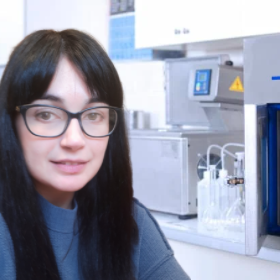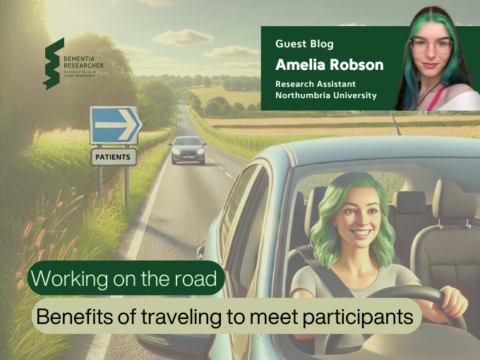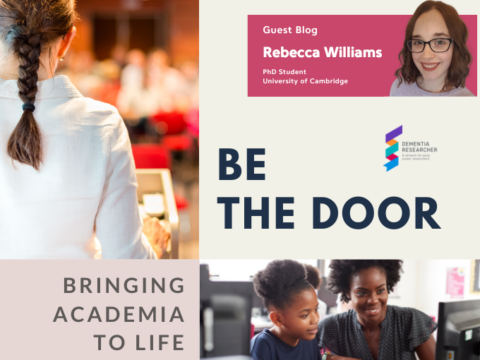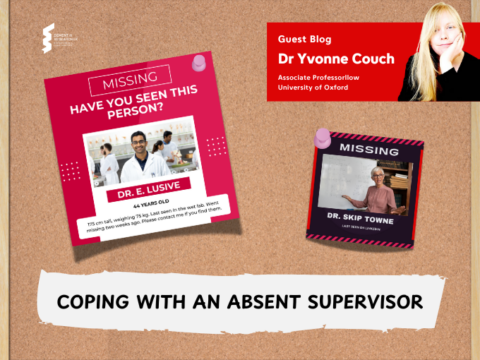Completing a PhD is like completing a piece of art, and according to Leonardo da Vinci “art is never finished. Only abandoned”. So when completing your PhD the question is not when is it finished, but when is the right time to abandon it. When that time comes, you will have to face what you have spent years training for: your viva. But what actually happens in a viva, and can you fail it? In this blog I will be discussing what to expect from your viva and sharing my experience of how I survived mine.
To start off; what even is a viva? Well technically it’s “viva voce” and is Latin for “with the living voice”. A viva is the oral examination you face at the end of your PhD where you are expected to defend your thesis under questioning from experts in your field. In many countries the viva can be public, where the student will give a presentation on their thesis in front of family, friends, and colleagues, before being questioned by their examiners. In the UK, the viva is conducted in private with two examiners: one internal, an academic from within your university; and one external, an academic from a different university. Your institution may also require a convener to be present to oversee the process, but they will not be allowed to ask you questions.
Everyone’s viva is slightly different as they can vary depending on your field, your institution, and your examiner’s style of questioning, but they all follow a similar format lasting for approximately two hours before being sent out of the room (or being put in a zoom break out room if Covid measures have required it to be online), while the outcome is deliberated. Once called back in, your examiners will recommend one of the following, again which can vary by institution guidelines:
- Pass with no corrections (very rare)
- Pass with minor corrections, which you’ll typically be given three months to complete (most common)
- Pass with major corrections, which often means being given six months to complete
- Asked to resubmit with substantial changes which you’ll be given a year to complete, but will require a second viva
- Award an MPhil, a lower degree compared to a PhD, if the thesis does not meet PhD standard but is still good quality
- Asked to resubmit for an MPhil with corrections
- Fail with no resubmission option or chance to be awarded an MPhil
Minor corrections differ from major corrections in that they will often consist of making further clarifications and small edits. In contrast, major corrections can include collecting more data, and making significant edits to the thesis text. Passing with corrections is the most common outcome simply because if you have reached the stage of having your viva, your PhD supervisors have deemed your work to be of standard and that you are capable of passing. Having said that, I do know people who have either had to resubmit and have a second viva, or been awarded an MPhil. It is rare, but it does happen.

Is a viva a formality?
In the UK, a viva is a verbal defence of your thesis; unlike other countries, it is not a formality, there are lots of ways it can go wrong.
So what was my viva like, and how did I survive it? It’s probably best to begin by disclosing that I, like many others, passed with minor corrections, so by no objective measure could it have been considered a bad viva. But by any subjective measure I might be tempted to say it was! Firstly, it was scheduled for 1 April, April Fool’s Day, which prompted many jokes about how my examiners would pretend I failed when I hadn’t. Thankfully, they didn’t. Secondly, I had previously shared an office with PhD students who were a year or two ahead of me, so I had seen them head off to their vivas and return a reasonable two hours later stating it went well and they enjoyed discussing their research. So I was primed for this to be my experience too. It wasn’t.
It is easy to spend time solely preparing for the scholarly aspects of the viva, such as preparing for potential questions and familiarising yourself with your examiner’s work to anticipate their perspectives and what they might ask. My supervisors prepared me well for this and I had given numerous talks and presentations throughout my PhD. However, I think I failed to prepare for the emotional aspects of the viva and how to manage my expectations of what would happen. Well-meaning people will tell you what to expect, such as you will be asked to summarise your thesis, or to explain why you used a certain statistical test. But if the unexpected happens, such as being asked a very difficult and specific question as an opener, you can feel totally thrown from the beginning. My viva lasted for around four hours and the moment I realised I was beyond the two-hour mark, I worried I was being kept for longer than I expected because I was doing so badly. I think the only thing which could have made my experience more positive is if I had been more flexible in my expectations, particularly now I understand how no two vivas are the same, and there is no template for how a viva examination will go.
It is perfectly possible to have a bad viva experience, and still have a good viva outcome. It has taken much reflection on my part to work out why I felt I had a bad viva when I was prepared, my examiners did a great job, and I only came out with minor corrections. But it shows that surviving a bad viva isn’t necessarily related to the outcome, but rather your experience of the viva itself. It is inevitable that people will try to offer you advice about what to expect, but I think that so long as you keep open-minded about what might happen, and you spend time focusing on the emotional as well as the scholarly aspects of your viva, you will be well prepared to survive it, whether you perceive it to be bad or not.

Dr Kamar Ameen-Al
Author
Dr Kamar Ameen-Ali is a Research Associate at University of Glasgow, exploring how neuroinflammation following traumatic brain injury contributes to the progression of neurodegenerative diseases that lead to dementia. Having first pursued a career as an NHS Psychologist, Kamar went back to University in Durham to look at rodent behavioural tasks to completed her PhD, and then worked as a regional Programme Manager for NC3Rs. Kamar brings a wealth of experience and writes on a range of topics from her time in the NHS, working for a Research Funder and from her work and life in the lab.

 Print This Post
Print This Post





